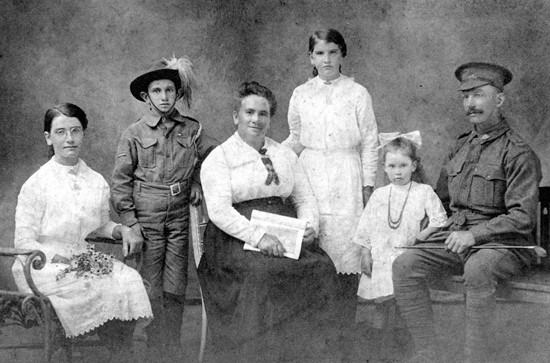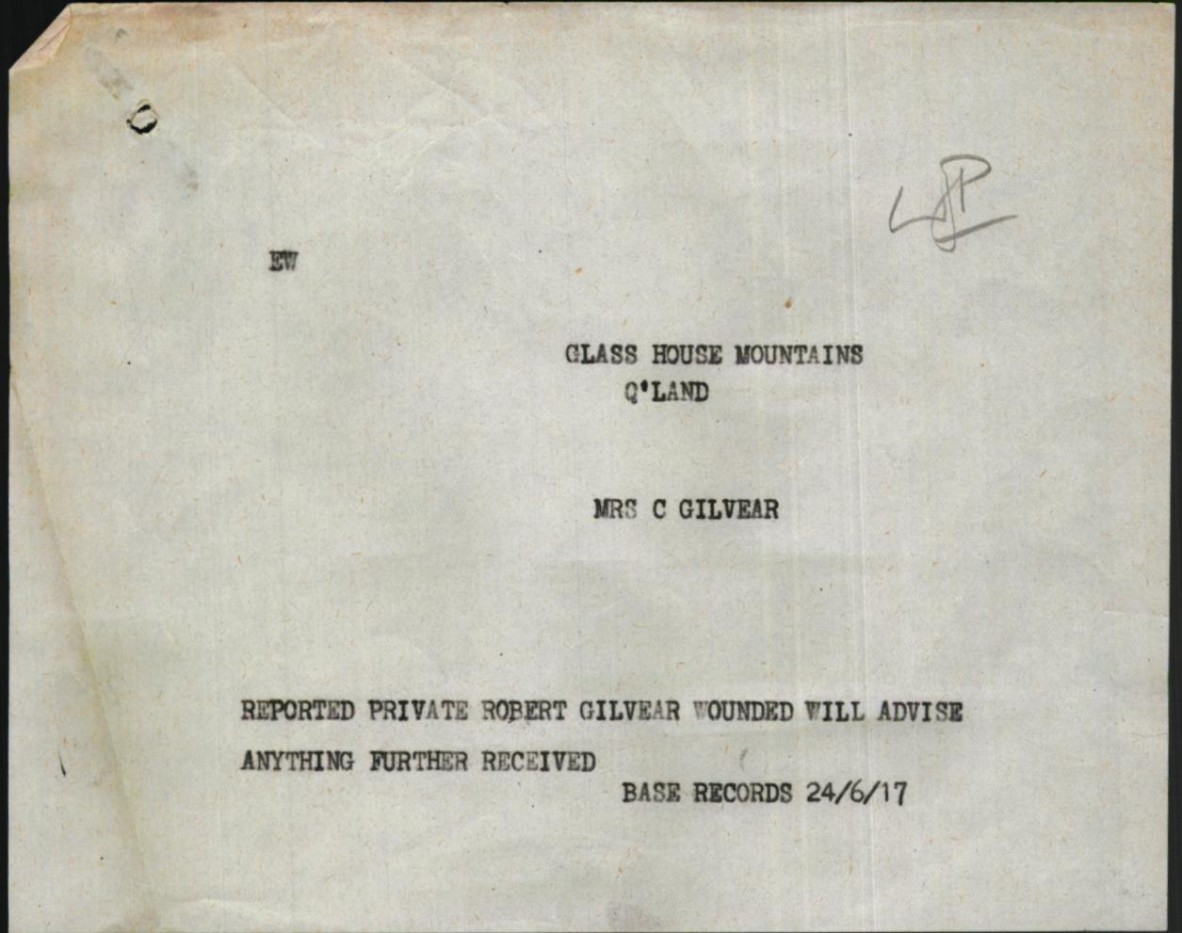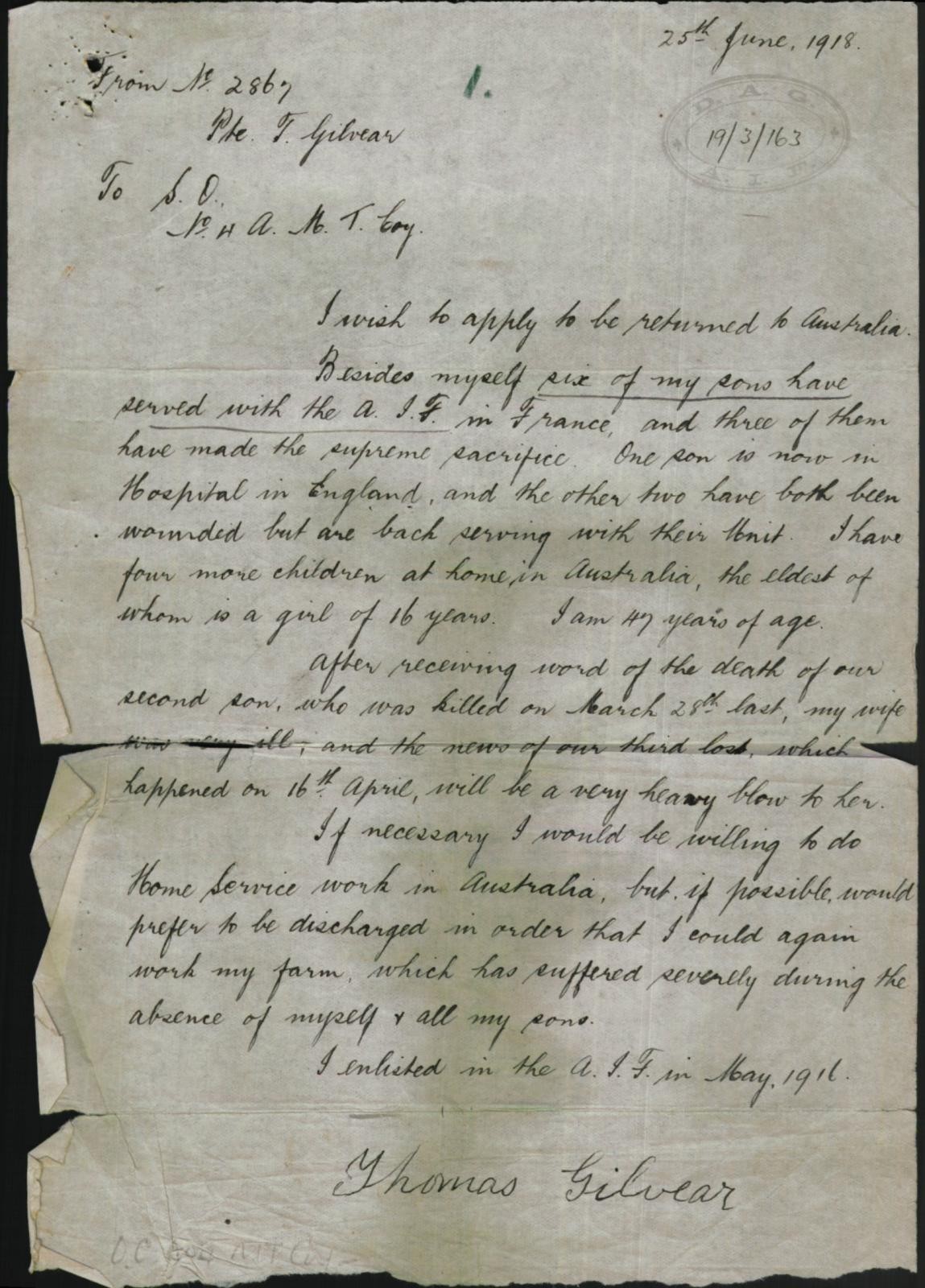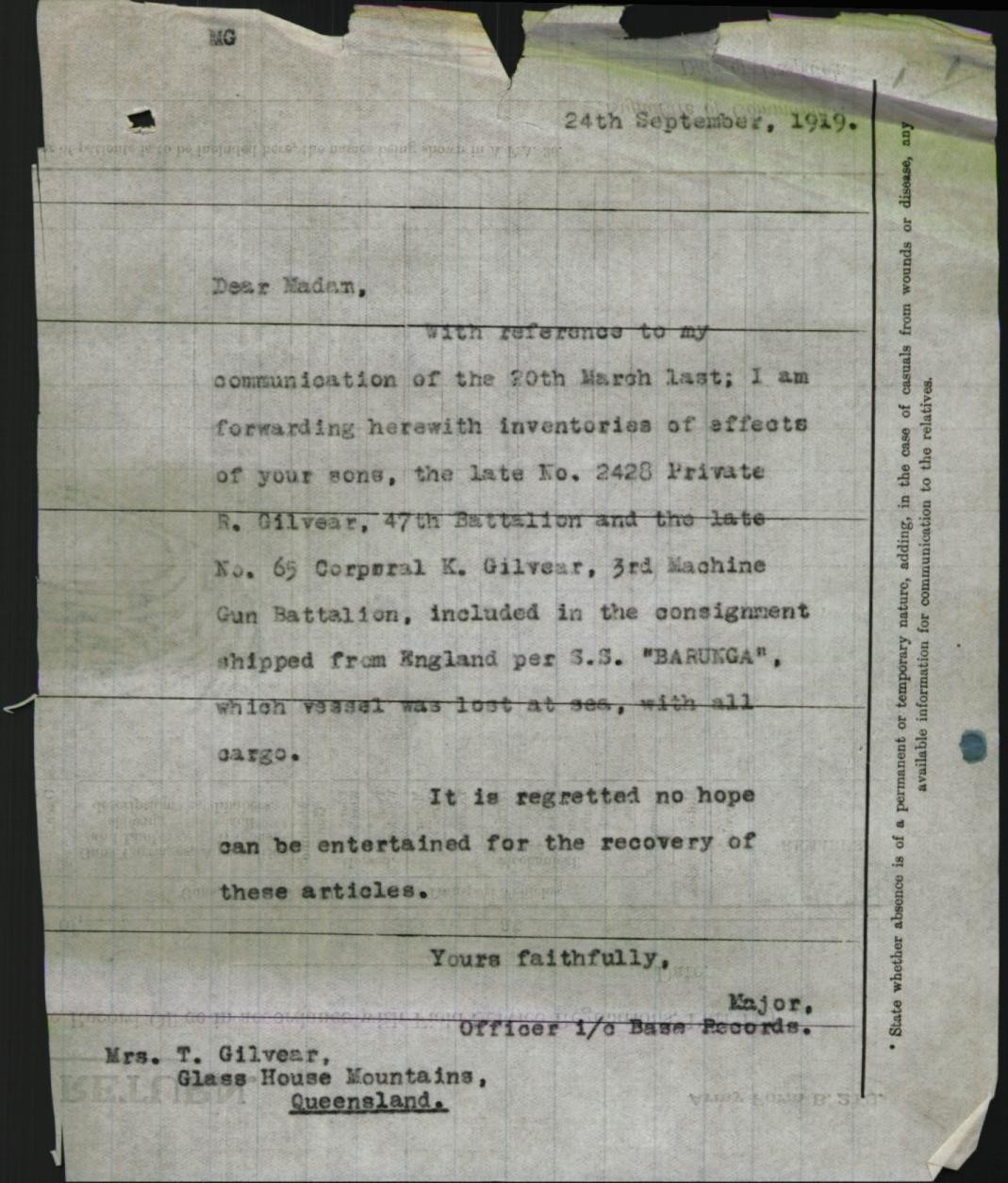Guest blogger: Vicki Shapcott, Heritage Library Leader, Sunshine Coast Council
Over 57,000 Queenslanders enlisted in the ‘Great War’ from 1914 to 1918. For many, their adventurous spirit and laughter were never to be experienced again in Australia.

Gilvear family L to R: Marion (later Mrs Jack Barr), William, Christina (nee Smith) and Christina (daughter - later Mrs Alec Barr), Nettie (Mrs Norm Wilson) and Thomas Gilvear Senior. The photograph was taken when Thomas was home from WW1, discharged for 'family reasons'.
Such is the story of the Scottish born Gilvear family of Glass House Mountains on the Sunshine Coast. Before war was declared, Thomas Gilvear ran a banana farm with his wife Christina and six older sons. In May 1916, he signed up at the age of 43 with six of his sons and they went on to fight at the front.
In 1917, James Smith Gilvear, applied for 10 days leave so he could help his mother plant some crops, ‘because my mother wants me to get off for ten days to plant an acre of bananas because she can’t get any help’.

While caring for the remaining four children and managing the farm, Christina Gilvear received telegrams with the news that three of her sons had been killed on the battlefields of France. Lance Corporal Alexander Smith Gilvear was killed in 1917 at Bullecourt. Private Robert Gilvear was killed in 1918 near Albert and Corporal Kenneth Gilvear was killed in action in 1918 at Sailley le Sec.

Request from Private Thomas Gilvear - father of the boys - to be allowed to come home from the battlefields.
Their father, Private Thomas Gilvear, requested a discharge from the army so that he could be with his wife and work the farm. On July 9, 1918, he received a letter from General Birdwood advising that due to the loss of his sons he was approved to return to Australia. The Brigadier-General noted that Thomas Gilvear had suffered more than his fair share for his country.
The Gilvear's other sons were wounded in action - Sargeant Thomas Gilvear Jnr at Messines in 1917, Private James Gilvear lost a leg and Private John Gilvear was wounded in 1918.

Sadness continued when the belongings of two of the Gilvear boys killed were lost at sea being while being transported back to Australia.
This is a unique story in today’s world but it was not uncommon to small towns where fine young men had enlisted as mates in the same units and then gone together into battle never to return to their home towns. Mrs Gilvear remained heartbroken due to the tragedy she experienced all of her life. At the end of World War 1, Beerwah townspeople climbed Mt Coochin, one of the Glass House Mountains and lit a celebration fire. One local resident stated, 'everywhere you looked there were bonfires on hilltops.’ Three of the Gilvear boys would never see their home town mountains again.
Comments
Your email address will not be published.
We welcome relevant, respectful comments.